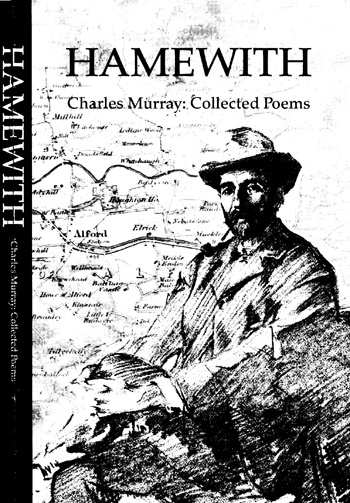One of Scotland’s most popular 20th century poets suppressed some of his own early work to save his career, it has been claimed.
Alford-born Charles Murray (1864-1941) was a key figure in the flowering of poetry in Scots in the first half of the twentieth century and, indeed, Scotland's most popular poet at that time.
He wrote much of his poetry in South Africa where he spent most of his working life as a civil engineer, producing three volumes of verse during his lifetime.
The language of Murray's verse drew heavily on the Donside Doric, his native tongue, but enthusiasm for his work spread to all parts of Scotland, to the large lowland Scots diaspora in England and the colonies – and even the Highlands.
Now, all of his Scots verse is to be republished in a revealing new volume called Hamewith – the Collected Poems of Charles Murray. It includes century-old poems in Scots from Murray's extremely rare first book, A Handful of Heather (1893).
Rare because, as the new edition reveals, Murray attempted to destroy all copies of the book because of a poem in it ridiculing Joseph Robinson - then a hugely influential figure in the South African gold-mining industry.
"Shortly after A Handful of Heather's publication, Murray took drastic action to withdrawit from circulation, recovering those copies not in family hands and destroying them," explained Dr Colin Milton, Associate Director of the University of Aberdeen's Elphinstone Institute, who edited the new edition.
Previous accounts have suggested Murray simply wanted to distance himself from his early work.
But during his research Dr Milton discovered a clue to the real reason in a note contained in a gifted copy of Handful of Heather stored in the University of Aberdeen Library. It read: '12 copies printed, 9 recovered and burnt by Charles Murray on account of poem "Mr Robinson." '
He said: "Murray had a great deal to lose: had his poem reached a wider public, its scathing portrayal of Robinson – a wealthy and still powerful man – might have ended Murray's own professional career, which was just beginning."
Dr Milton added: "Murray was the most important Scots poet of his generation and easily the best-known Scots literary figure of the first half of the twentieth century. Poems like 'The Whistle', 'It Wasna his Wyte' and 'There's Aye a Something' were eagerly read, learned by heart and recited by generations of Scots.
"In an era when many newspapers and general-interest magazines regularly published verse, Murray was able to reach a much wider audience than the poetry book-buying public. One of his best known poems, 'There's Aye a Something', for instance, appeared in the Press and Journal in 1933 long before it achieved the dignity of book form and was a publishing sensation."
The new edition of Hamewith…, edited by Dr Milton, will be officially launched at the Elphinstone Institute, MacRobert Building at 6pm on Wednesday, June 4.
The book updates Nan Shepherd's 1976 volume, restoring several early Scots poems which she did not reprint, adding to the glossary of Scots words and including a separate glossary of allusions and proper names.
For more information on Charles Murray visit http://www.abdn.ac.uk/charlesmurray/


